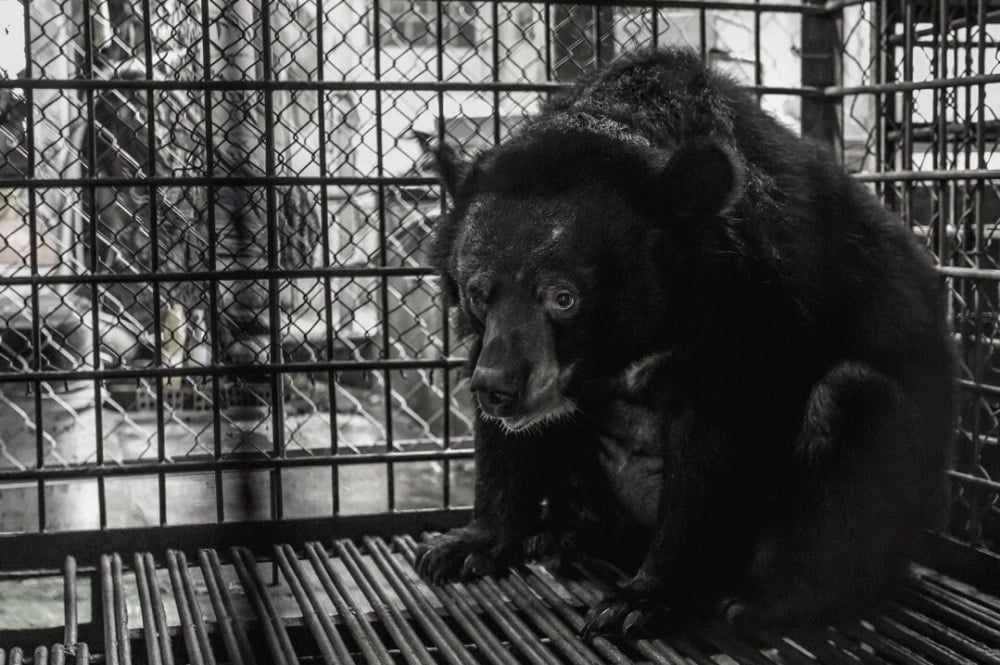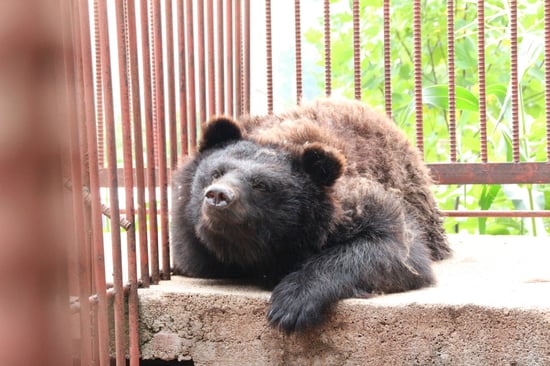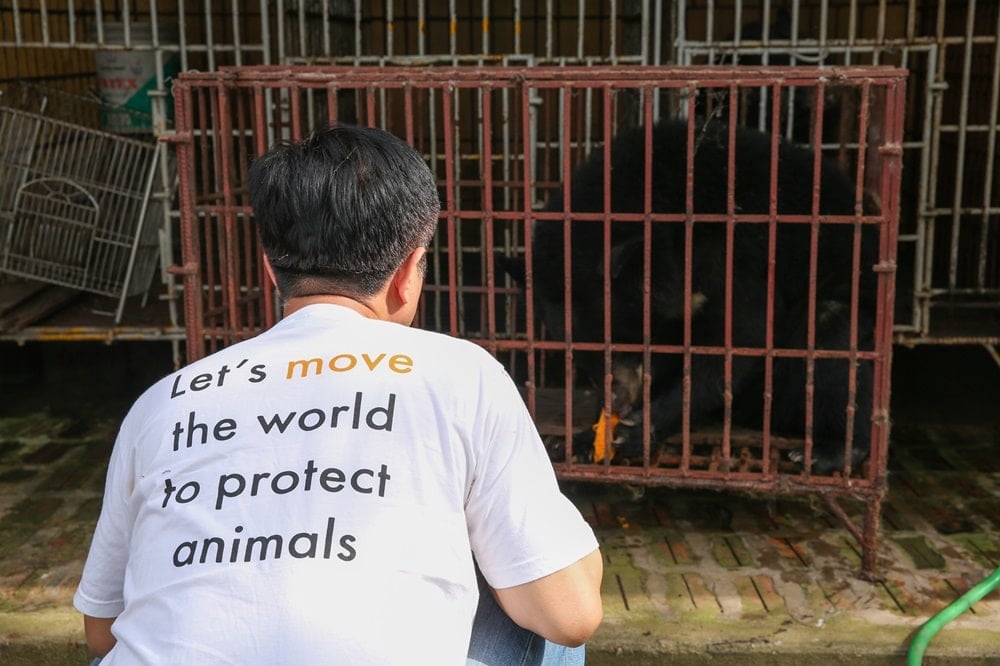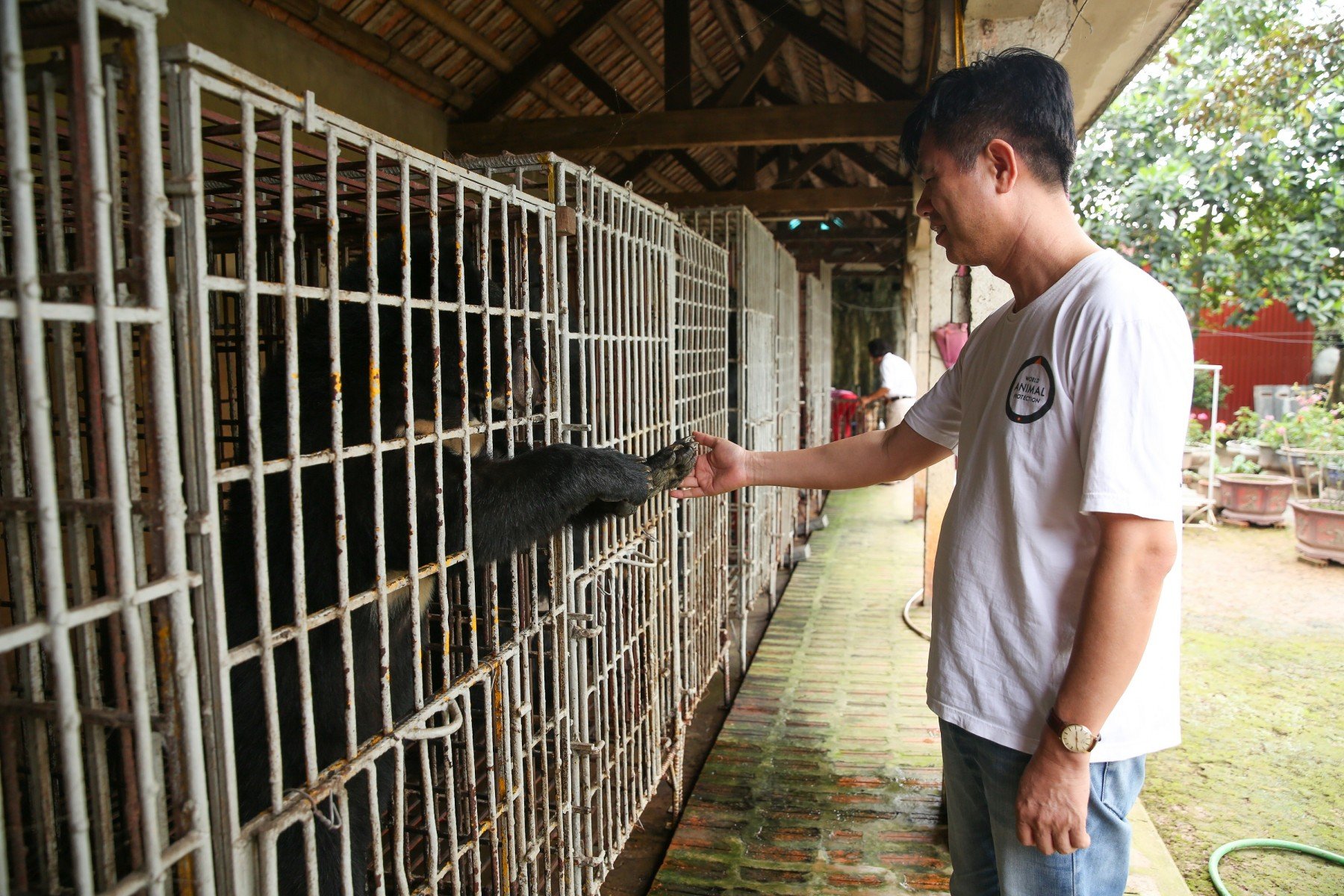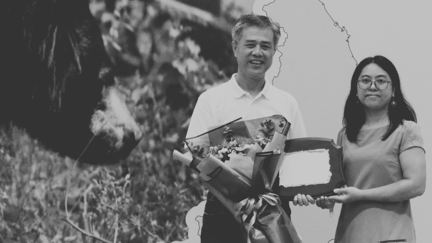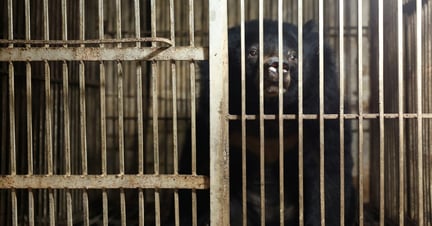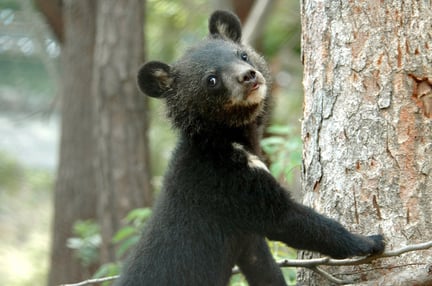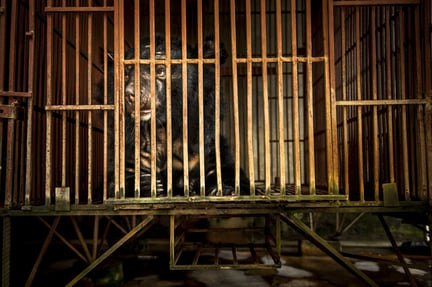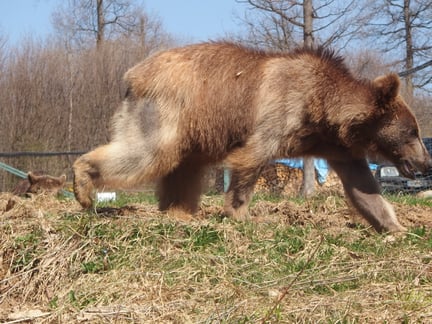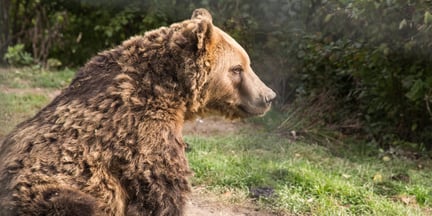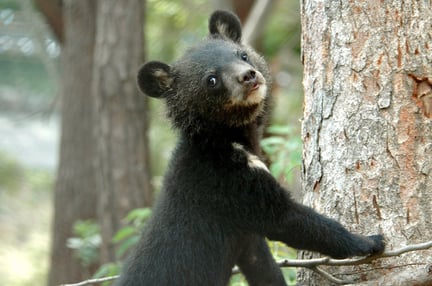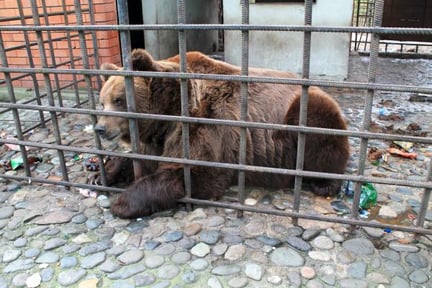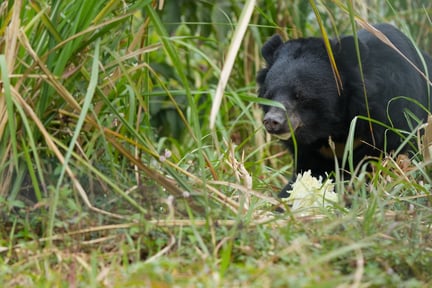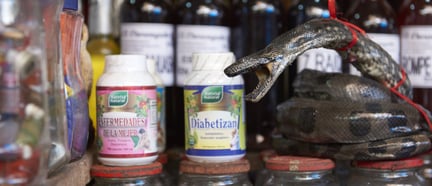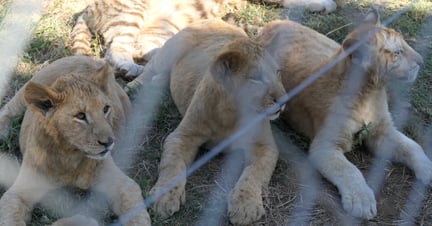Bear bile farming is a deeply inhumane practice in Asia, where bears are confined in cramped, filthy cages and subjected to painful procedures to extract their bile for traditional medicine. These conditions cause lifelong suffering, with many bears enduring up to 20 years of physical and psychological torment.
We’re making progress towards ending the bear bile industry for good. In Vietnam, bear bile farming is illegal, and there has been a 96% decline in the practice since 2005. In South Korea, we’re pleased to report that a ban will be effective from January 2026.
However, in China, bear bile farming is still legal and widespread. Despite the availability of synthetic and herbal alternatives, the industry persists here, inflicting needless cruelty on more than 20,000 intelligent and sentient bears.
But together, we can take action to end this unjustifiable practice and protect bears from further harm. Thanks to humane alternatives and the changing attitudes of governments and consumers, the industry is nearing its end in Vietnam and South Korea. In 2025, we will build on this progress and use our experience to drive change in China — the last stronghold of bear bile farming — and take decisive steps toward ending this cruelty forever.
About the Bear Bile Industry
Many people are unaware of the horrors of the bear bile industry, a form of wildlife farming, which involves thousands of bears living in harsh conditions solely for traditional medicine.
The practice of bear bile farming began decades ago, fuelled by the demand for bile in traditional medicine, believed to have therapeutic properties. Countries like China, Vietnam, South Korea, Laos, and Myanmar became hotspots for the industry. Today, more than 20,000 bears are held in legally licensed bile farms in China. Many others are farmed illegally across Asia. These facilities are often associated with inhumane conditions and outdated bile extraction methods.
While bear bile farming is still legal in China, other nations have taken action to stop this practice. In South Korea, for example, it will be banned from January 2026. However, efforts to phase out this practice face challenges, including enforcement gaps, traditional medicine demand, and resistance from bear farm owners. In Vietnam, for example, bear bile farming and extraction have been banned since 2005, but the country still struggles with illegal farming and trade.
China: The Final Frontier
In China, bear bile farming is still a legally licensed form of commercial animal exploitation. More than 20,000 bears are held in cruel conditions and subjected to painful procedures that cause lasting physical and psychological damage. In 2025, World Animal Protection continues to fight for bear protection and to end bear bile farming in China.
In 2024, we jointly launched the Wildlife Friendly Medicine Network (WFMN) with 10 member companies. Our goal was to rally the support of traditional Chinese medicine (TCM) enterprises and promote the use of alternatives to wildlife products.
With our promotion and advocacy, the Chinese government has launched policies that support local pharmaceutical companies and research institutes to develop bear bile substitutes. The first of these — which offers identical if not better therapeutic effects as bear bile — has now completed clinical trials and has been submitted to the national drug administration for approval.
We’re also supporting policymakers to ban bear breeding and phase out the bear farming industry, finding effective and humane ways to manage the thousands of bears still held captive on farms.
We’re finding new ways to work with partners, like China Green Development and Biodiversity Conservation Foundation (CGDBCF), to protect bears from poaching, rescue and release injured bears, and provide technical support and guidance for bear farmers who want to embrace bear-friendly solutions.
Another of our key objectives for 2025 is to run a pilot project, choosing one bear farm and supporting its transition away from bear bile production. This will then act as a model for future projects, moving us closer to the end of the bear bile industry.
Needless Cruelty To Bears — The Horrific Reality of Life on a Bear Bile Farm
The often-overlooked bear bile farming industry is one of the most horrific examples of animal cruelty. Imagine life in a tiny, barren cage, barely larger than your body. You can't turn around and naturally feel mentally and physically distressed. You are isolated; there's no natural light, exercise or stimulation.
How can we do this to sentient beings?
On top of the horror of daily life, these captive bears are then subjected to torturous bile extraction procedures, where bile is drained from their gallbladders. This extraction procedure is agonising and worse, the equipment is unsanitary, so infections are common if they don't succumb to a slow and painful death.
Synthetic substitutes to bear bile now prove equally or more effective than bear bile in the treatment of gallstones and liver disease. There is no excuse for bear cruelty and suffering to continue.
Bear Bile: Our Work
Since 2005, World Animal Protection has been working to end the cruel practice of bear bile farming. Key actions included registering and microchipping all captive bears to prevent illegal trade and exploitation. Working alongside other organisations — like ENV, Animals Asia, Four Paws, and Free The Bears — World Animal Protection has helped rescue bears and reduce the demand for bear bile.
We’ve helped the Vietnamese government oversee its bear farming ban and reduce the number of bears held on farms by 96%. We’ve also successfully lobbied the South Korean government to ban bear bile farming from January 2026. Over in China, our work to end the legal bear bile industry continues.
Alongside our partners, we’re lobbying the Chinese government to ban bear breeding and to support the development of synthetic alternatives to bear bile. We’re also supporting farmers to end bear bile extraction and transition to bear-friendly practices.
Together, we can ensure that the remaining bears are rescued
World Animal Protection continues to call for urgent action to confiscate illegally kept bears and end the industry. We couldn't have gotten this far without our supporters, and you can continue to put an end to this cruel industry. Join our email list to stay updated and ready to take action for these incredible species.
What is Bear Bile?
Bear bile is a digestive fluid produced by the liver and stored in the gallbladder of bears. It is highly valued in traditional Asian medicine due to its high concentration of ursodeoxycholic acid (UDCA), which is believed to have various medicinal properties.
What is a Bear Bile Farm?
A bear bile farm is a facility where bears, typically Asiatic black bears, are kept in captivity to harvest their bile. These farms subject bears to inhumane conditions, often involving small cages and painful bile extraction methods, which cause severe physical and psychological harm to the animals.
What is Bear Bile Used For?
Bear bile is used primarily in traditional Asian medicine, despite the availability of herbal alternatives and growing appetite for these medicines among practitioners. It is believed to treat a range of ailments, including liver disease, gallstones, and inflammation.
How is Bear Bile Collected?
Bear bile is collected through invasive and painful methods, including catheterisation, syringe extraction, or surgically created fistulas. These procedures are performed repeatedly over the bear's lifetime, causing significant suffering and often leading to infections and other health issues.
Does Bear Bile Farming Still Exist?
Yes, bear bile farming still exists. Bear bile farming has declined by 96% in Vietnam thanks to a ban that came into effect in 2005. But despite growing awareness and campaigns against the practice, many bears continue to be held in captivity and subjected to bile extraction for traditional medicine. In South Korea, bear bile farming will be illegal from January 2026. In China, bear bile farming is still legal, and there are over 20,000 bears kept on farms.
Is bear bile still legal in China?
Yes, bear bile farming is still legal in China. The industry is worth more than US$1 billion. However, thanks to advocacy, there are signs that the attitude of the Chinese government is shifting.
New policies have been introduced to support local pharmaceutical companies and research institutes to develop bear bile substitutes. These projects now receive government funding. Many doctors and traditional medicine practitioners have also pledged to use wildlife-friendly medicine.
Which countries still farm bears for bile?
In China, bear bile farming is legally licensed. In Vietnam, bear bile farming has been illegal since 2005. In South Korea, bear bile farming and bile extraction will be prohibited from 1 January 2026.
However, even in countries where bear bile farming is illegal, the practice still continues. Bear bile farming is a lucrative industry, and there’s still a considerable demand for bear bile. So tackling the illegal trade in bear bile remains an important priority.
Why is Bear Bile Harvested?
Bear bile is harvested due to its high content of ursodeoxycholic acid (UDCA), which is believed to have medicinal properties. Traditional Asian medicine values bear bile for treating various ailments, despite the availability of effective and humane synthetic alternatives. This demand fuels the continued practice of bear bile farming.
What are the alternatives to bear bile?
There are synthetic alternatives to bear bile. Synthetic versions, such as ursodiol, are widely available and perform the same therapeutic functions without the cruelty of farming bears. In addition, new research and clinical trials are paving the way for fully plant-based and 100% animal-friendly alternatives.
A consumer study in China showed that people who use traditional medicine are willing to choose these wildlife-free alternatives when clearly informed of their benefits. This early evidence, combined with today’s advances in synthetic and plant-based substitutes, demonstrates that demand for bear bile can be replaced by humane options — protecting bears from decades of suffering
Why is 2025 a turning point for bear bile farming?
2025 is a turning point for bear bile farming because this is the final year that the practice will be legally licensed in South Korea. As of 1 January 2026, bear bile farming in South Korea will be banned.
This year also marks a shift in the attitudes of the Chinese government towards bear bile production and trade. While bear bile farming is still legal in China, the government is now supporting the development of synthetic and humane alternatives to bear bile.
These alternatives could satisfy consumer demand and ensure that this generation of bears is the last to endure the horrific conditions of bear bile farms.
